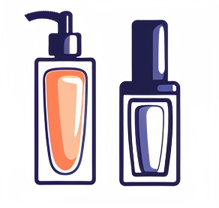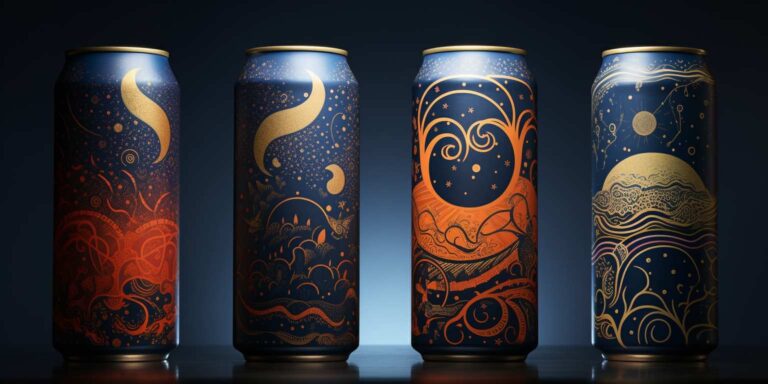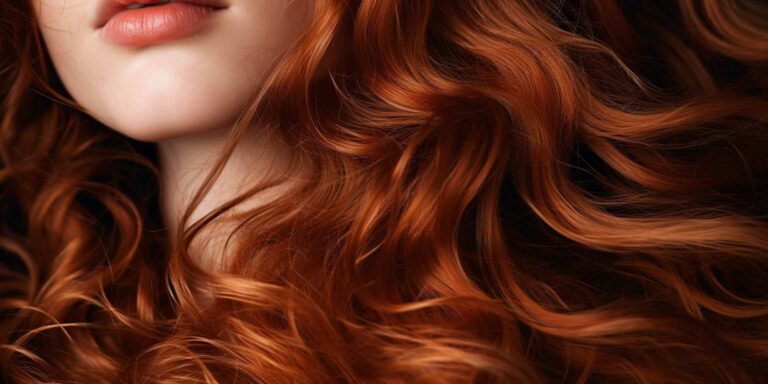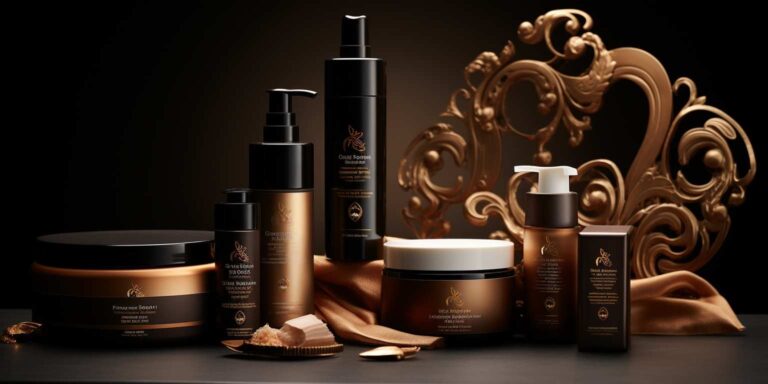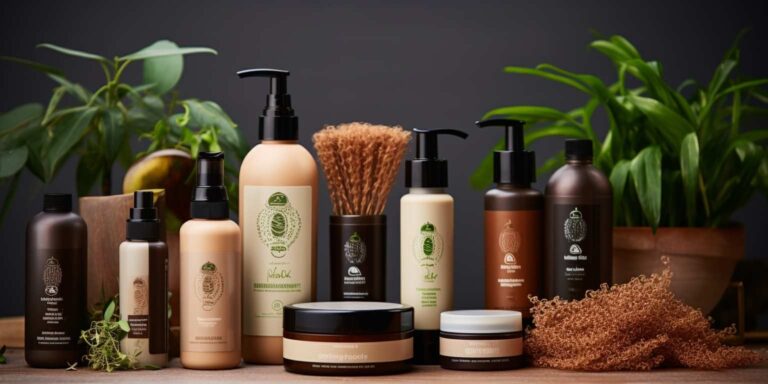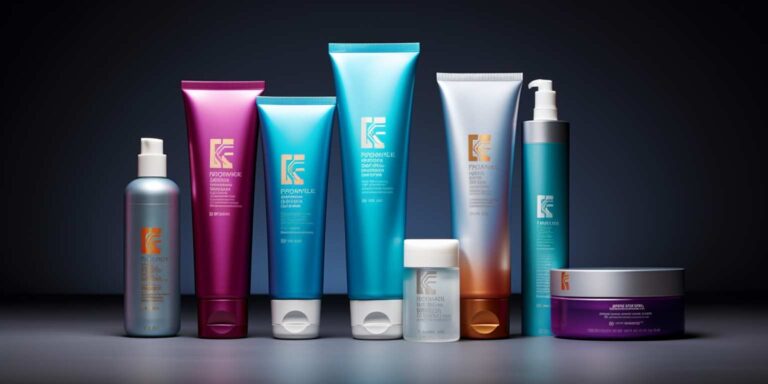How to achieve flake-free hair with anti-dandruff shampoo
When it comes to banishing dandruff, not all shampoos are created equal. Anti-dandruff shampoos are specially formulated to target the root cause of dandruff while keeping your hair clean and manageable.
Key ingredients in anti-dandruff shampoos, such as zinc pyrithione, coal tar, or salicylic acid, work to combat the fungus responsible for dandruff, while soothing your scalp and preventing further flaking.
| Ingredient | Function |
|---|---|
| Zinc Pyrithione | Antifungal properties; reduces flakes and itching |
| Coal Tar | Slows down the growth of skin cells, reducing flakiness |
| Salicylic Acid | Exfoliates the scalp, removing dead skin cells |
When using anti-dandruff shampoo, it’s essential to follow these tips for optimal results:
- Consistency is key: Use the shampoo regularly, preferably every time you wash your hair, to keep dandruff at bay.
- Massage thoroughly: Gently massage the shampoo into your scalp for a few minutes before rinsing to ensure maximum penetration and effectiveness.
- Rinse thoroughly: Make sure to rinse your hair thoroughly after shampooing to remove any residue.
While anti-dandruff shampoos are highly effective, they can sometimes be drying. To combat this, consider using a moisturizing conditioner after shampooing to keep your hair hydrated and soft.
Scalp treatment shampoo for healthy hair
Scalp treatment shampoo for healthy hair is not just a luxury; it’s a necessity in today’s world of pollution, stress, and hectic lifestyles. Our scalp treatment shampoo is formulated with carefully selected ingredients to not only cleanse but also nourish and revitalize your scalp, ensuring that your hair remains healthy and vibrant from root to tip.
One of the key ingredients in our scalp treatment shampoo is tea tree oil, renowned for its antibacterial and antifungal properties. This powerhouse ingredient helps to cleanse the scalp of impurities while also soothing irritation and reducing inflammation, promoting a healthy environment for hair growth.
In addition to tea tree oil, our scalp treatment shampoo contains menthol, which provides a cooling sensation on the scalp, alleviating itching and promoting blood circulation. Improved blood flow to the scalp means better nutrient delivery to the hair follicles, resulting in stronger, healthier hair.
Furthermore, our scalp treatment shampoo is enriched with vitamins and antioxidants that help to protect the scalp and hair from environmental damage. These nutrients nourish the scalp, strengthening the hair follicles and preventing breakage, ensuring that your hair remains lustrous and full of life.
Regular use of our scalp treatment shampoo not only improves the health of your scalp but also enhances the overall appearance of your hair. Say goodbye to dryness, dandruff, and dullness, and hello to luxuriously soft, shiny hair that commands attention.
The key to flake-free hair care
Flake-free hair care is not just a desire but a necessity for many individuals striving for healthy, luscious locks. The journey to achieving a flake-free scalp and hair involves understanding the root causes of flakes and adopting effective strategies to combat them.
One of the primary culprits behind flaky hair is dandruff, a common condition caused by various factors such as dry skin, oily skin, fungal infections, or sensitivity to hair care products. Identifying the specific cause of dandruff is crucial in determining the most suitable treatment approach.
Moisturizing the scalp is key to preventing flakes caused by dryness. Just as our skin needs hydration, so does our scalp. Using conditioners and hydrating hair masks enriched with ingredients like aloe vera or coconut oil can help nourish the scalp and maintain its moisture balance.
| Key Strategies for Flake-Free Hair Care |
|---|
| 1. Proper Hydration: Drink plenty of water to hydrate from within and use moisturizing hair care products. |
| 2. Gentle Cleansing: Avoid harsh shampoos and opt for sulfate-free formulas to prevent stripping natural oils from the scalp. |
| 3. Scalp Exfoliation: Regularly exfoliate the scalp to remove dead skin cells and promote healthy hair growth. |
| 4. Balanced Diet: Consume a diet rich in vitamins and minerals essential for hair health, such as vitamin E, zinc, and omega-3 fatty acids. |
Scalp exfoliation is another crucial step in flake-free hair care. Just as we exfoliate our skin to remove dead cells, the scalp also benefits from gentle exfoliation. This process helps unclog hair follicles, allowing for better absorption of nutrients and promoting healthy hair growth.
Furthermore, proper cleansing is essential for maintaining a flake-free scalp. However, harsh shampoos containing sulfates can strip the scalp of its natural oils, leading to dryness and flakiness. Opting for sulfate-free shampoos and limiting hair washing frequency can help preserve the scalp’s natural moisture.
Balanced nutrition plays a significant role in overall hair health. A diet rich in vitamins, minerals, and essential fatty acids nourishes the scalp and promotes healthy hair growth from the inside out. Incorporating foods such as salmon, avocado, spinach, and berries can provide the nutrients needed for vibrant, flake-free hair.
Understanding the causes of dandruff
Dandruff, a common scalp condition, is often misunderstood and oversimplified as just a dry scalp issue. However, its causes are multifaceted, involving factors such as skin oil production (sebum), Malassezia (a yeast-like fungus), and individual susceptibility, including sensitivity to specific hair products or even diet. Understanding these elements is crucial for effective management and treatment.
The interplay between sebum and Malassezia is central to understanding dandruff. Malassezia thrives in oily environments, metabolizing sebum and producing oleic acid. For individuals sensitive to oleic acid, this can lead to skin irritation, increased skin cell turnover, and consequently, the flaky, itchy scalp associated with dandruff. This cycle is influenced by various factors, ranging from genetic predisposition to hormonal fluctuations, which can exacerbate or mitigate dandruff severity.
Another significant cause of dandruff is the use of certain hair care products. Some individuals may experience a reaction to specific ingredients in shampoos, conditioners, or styling products, leading to contact dermatitis. This condition mimics dandruff symptoms, including a flaky scalp and irritation. Identifying and avoiding these irritants is essential for individuals affected by this form of dandruff.
Diet also plays a role in dandruff. Though less direct, nutritional deficiencies—particularly in zinc, B vitamins, and certain fats—can impair skin health and potentially exacerbate dandruff symptoms. Conversely, a diet rich in these nutrients may help manage or reduce symptoms.
Stress and certain illnesses, such as HIV or Parkinson’s disease, have also been linked to increased susceptibility to dandruff. These conditions may alter the immune system’s response, affecting the scalp’s skin cycle and potentially increasing sebum production or sensitivity to Malassezia.
Environmental factors, including dry weather and cold temperatures, can also contribute to dandruff. These conditions can dry out the scalp’s skin, leading to flaking and itching, which may be mistaken for or worsen existing dandruff.
| Cause | Explanation |
|---|---|
| Sebum and Malassezia | Yeast-like fungus metabolizes sebum, producing irritants leading to dandruff. |
| Product Sensitivity | Ingredients in hair care products can cause contact dermatitis, mimicking dandruff. |
| Nutritional Deficiencies | Lack of zinc, B vitamins, and certain fats can impair skin health and exacerbate dandruff. |
| Stress and Illness | Can alter immune response and skin cycle, affecting dandruff severity. |
| Environmental Factors | Dry, cold weather can dry out scalp skin, leading to flaking and itching. |
Daily routines to enhance your anti-dandruff treatment
Dandruff can be a persistent nuisance, but incorporating daily routines into your anti-dandruff treatment can significantly improve your scalp health and reduce flaking. Here are some essential steps you can take:
- Gentle cleansing: Use a mild shampoo specifically formulated for dandruff-prone scalps. Look for ingredients like zinc pyrithione or coal tar, which help combat dandruff-causing fungus.
- Frequent washing: Wash your hair regularly, ideally every other day, to prevent the buildup of dead skin cells and oils on your scalp.
- Scalp massage: Incorporate a gentle scalp massage into your daily routine to improve blood circulation and loosen flakes. Use your fingertips to massage the shampoo into your scalp for a few minutes before rinsing.
- Exfoliation: Use a soft brush or scalp scrub once or twice a week to exfoliate the scalp and remove dead skin cells. Be gentle to avoid irritating the scalp further.
In addition to these daily routines, consider the following lifestyle changes to complement your anti-dandruff treatment:
- Healthy diet: Incorporate nutrient-rich foods like fruits, vegetables, and lean proteins into your diet to support overall scalp health.
- Hydration: Drink plenty of water to keep your scalp hydrated and prevent dryness, which can exacerbate dandruff.
- Stress management: Practice stress-reducing techniques such as meditation, yoga, or deep breathing exercises to minimize stress levels, as stress can worsen dandruff symptoms.
Natural remedies vs. anti-dandruff shampoo
Natural remedies versus anti-dandruff shampoo
Dealing with dandruff can be a pesky problem, leaving many searching for effective solutions. The debate between natural remedies and anti-dandruff shampoos has been ongoing, each side advocating for its efficacy. Let’s delve into the main points of comparison between the two:
| Aspect | Natural Remedies | Anti-Dandruff Shampoo |
| Ingredients | Natural remedies often rely on ingredients like tea tree oil, coconut oil, apple cider vinegar, and aloe vera. These ingredients are believed to have antifungal and moisturizing properties. | Anti-dandruff shampoos contain active ingredients such as zinc pyrithione, coal tar, or salicylic acid, designed to combat fungal growth and reduce scalp inflammation. |
| Efficacy | Natural remedies may provide relief for mild dandruff cases, but their efficacy can vary widely. Results are often gradual and require consistent use. | Anti-dandruff shampoos are formulated specifically to target dandruff-causing fungi and reduce flaking. Many users report visible improvement after just a few uses. |
| Convenience | Preparing and applying natural remedies can be time-consuming and messy. It may also involve experimenting with different combinations to find what works best. | Anti-dandruff shampoos offer convenience and ease of use. Simply lather into the scalp during shower time, making it a hassle-free solution. |
| Cost | Many natural remedies involve common household ingredients, making them relatively affordable. However, specialty oils or organic products can be pricey. | While some anti-dandruff shampoos can be more expensive than regular ones, they are generally accessible and affordable for most budgets. |
Maintaining a healthy scalp long-term
When it comes to maintaining a healthy scalp long-term, consistency is key. Just like any other part of your body, your scalp requires regular care to stay in optimal condition. Let’s delve into some essential practices that can help you achieve and maintain a healthy scalp for the long haul.
Proper cleansing: One of the fundamental aspects of scalp care is regular cleansing. Use a mild shampoo suited to your hair type and scalp condition. It’s important not to overwash, as this can strip away natural oils and disrupt the scalp’s balance. Aim to wash your hair 2-3 times per week, or as needed based on your lifestyle and hair type.
Scalp massage: Treat your scalp to regular massages to stimulate blood flow and promote healthy hair growth. Use your fingertips to gently massage your scalp in circular motions, focusing on areas that feel tense or congested. This not only feels relaxing but also helps distribute natural oils and remove buildup.
Moisturizing: Just like your skin, your scalp can benefit from hydration. If you have a dry scalp, consider using a scalp oil or serum to nourish and moisturize. Look for ingredients like argan oil, jojoba oil, or coconut oil known for their moisturizing properties. Apply sparingly and focus on the roots and any areas of dryness.
Protective styling: While styling your hair can be fun, it’s essential to strike a balance and avoid practices that can damage your scalp. Limit the use of heat styling tools, and opt for protective hairstyles that don’t pull or tug at the scalp. Be mindful of tight ponytails, braids, or extensions, as these can cause tension and even lead to conditions like traction alopecia.
| Healthy Scalp Practices: | Frequency: |
|---|---|
| Wash hair with mild shampoo | 2-3 times per week |
| Scalp massage | Several times per week |
| Apply scalp oil or serum | As needed, focusing on dry areas |
Healthy diet: Your scalp’s health is closely linked to your overall well-being, so be sure to nourish your body with a balanced diet rich in essential nutrients. Foods high in omega-3 fatty acids, vitamins A, C, and E, and protein can promote scalp health and hair growth. Drink plenty of water to stay hydrated and flush out toxins that could affect your scalp.
